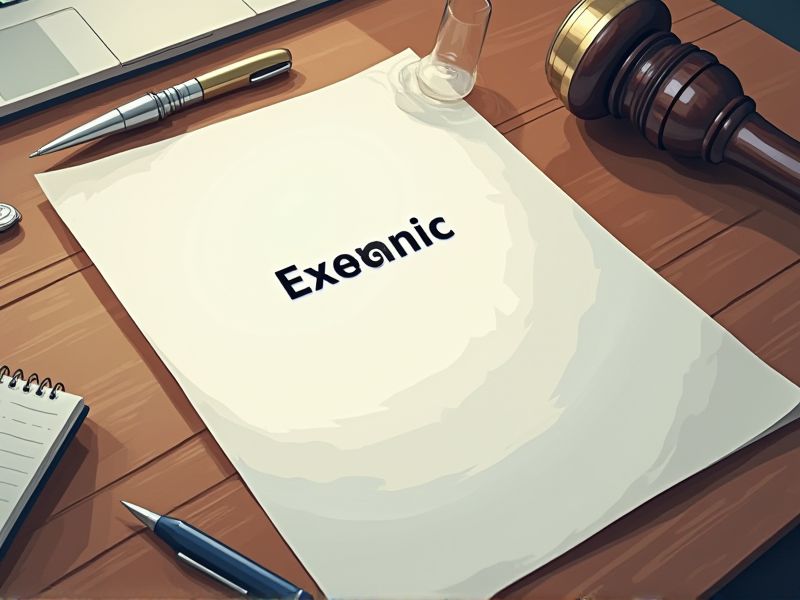
To effectively analyze and interpret evidence, forensic examiners require specialized certifications. These certifications validate their expertise and ensure adherence to established protocols in handling digital and physical evidence. Without proper qualifications, the risk of error increases, potentially compromising legal proceedings and justice outcomes. Some important certifications for a forensic examiner include Certified Forensic Computer Examiner (CFCE) and EnCase Certified Examiner (EnCE).
EnCase Certified Examiner (EnCE)
The EnCase Certified Examiner (EnCE) certification validates a forensic examiner's competence in using the widely trusted EnCase software, enhancing credibility in legal contexts. Employers value the EnCE certification as it demonstrates a professional's commitment to staying current with digital forensic methodologies. Effective digital investigations often require precise data analysis; EnCE certification ensures an examiner's ability to handle such complexities. As cybercrime grows in sophistication, having certified experts like those with EnCE credentials is crucial for generating reliable forensic reports.
Certified Computer Examiner (CCE)
Certified Computer Examiner (CCE) credentials provide forensic examiners with a standardized framework to conduct digital investigations. Having this certification ensures that examiners possess validated skills in handling electronic evidence and maintaining the integrity of the data. Legal systems increasingly require certified professionals to ensure investigations hold up in court. The training involved in obtaining a CCE enhances an examiner's expertise to identify, preserve, and analyze critical digital information efficiently.
GIAC Certified Forensic Examiner (GCFE)
Attaining the GIAC Certified Forensic Examiner (GCFE) certification validates the expertise of forensic examiners in effectively handling complex data analysis tasks. It ensures that professionals are up-to-date with the latest forensic techniques, which enhances their capabilities in investigating digital incidents. The certification provides a structured knowledge base for identifying and mitigating security breaches efficiently. Employers recognize the GCFE as a mark of proven competence, often making it a preferred credential in hiring qualified forensic specialists.
Computer Hacking Forensic Investigator (CHFI)
When a cybercrime occurs, CHFI professionals play a critical role in identifying and securing digital evidence to support legal proceedings. Their expertise allows them to reconstruct cyber activities, providing clarity on how breaches or illegal actions transpired. Through their comprehensive skill set, CHFI certified individuals can trace digital footprints, which is crucial for determining the origin and scope of cyber incidents. Their ability to document and report findings ensures that legal standards are met, making the information admissible in court.
Certified Forensic Computer Examiner (CFCE)
The requirement for a Certified Forensic Computer Examiner (CFCE) arises because such certifications ensure a standardized level of technical competence and reliability in handling digital evidence. A CFCE accreditation validates an examiner's ability to apply forensic principles and follow legal protocols, which is crucial since improperly handled evidence can be inadmissible in court. The CFCE program maintains stringent examination and testing measures, ensuring the examiner is equipped with up-to-date forensic methodologies. Trust in a CFCE-certified examiner enhances the credibility of the investigation and its findings in legal proceedings.
AccessData Certified Examiner (ACE)
The AccessData Certified Examiner (ACE) credential provides forensic examiners with official validation of their proficiency in using AccessData tools, which strengthens their credibility and trustworthiness in legal proceedings. Employers increasingly seek ACE certification as proof of an examiner's specific technical skills and competencies in digital forensic investigations. The structured training and rigorous assessment involved in obtaining ACE certification ensure that forensic examiners stay updated with the latest methodologies and software capabilities. As digital evidence becomes pivotal in investigations, having an ACE-certified examiner contributes to more accurate, reliable forensic analysis and reporting.
Certified Cyber Forensics Professional (CCFP)
Demand for Certified Cyber Forensics Professionals (CCFPs) arises as cybercrime rates increase, necessitating specialized skill sets to handle complex investigations. CCFPs possess an in-depth understanding of legal and ethical issues, critical for ensuring evidence is admissible in court. Their expertise in advanced digital forensics helps organizations effectively trace data breaches and cyber incidents. Industries require CCFPs to safeguard sensitive information and maintain cybersecurity standards.
Certified Fraud Examiner (CFE)
The rise in fraudulent activities in various sectors increases the demand for Certified Fraud Examiners (CFEs) who possess specialized expertise in detecting and preventing fraud. CFEs utilize their knowledge of complex financial transactions and legal frameworks, aiding forensic examiners in accurately examining evidence and conducting thorough investigations. Their skills in identifying financial discrepancies and vulnerabilities enhance the overall efficiency of forensic examinations. Their ethical understanding and adherence to high professional standards bolster the credibility of fraud investigations.
Certified Information Systems Security Professional (CISSP)
A Forensic examiner benefits from CISSP certification as it provides a comprehensive understanding of information security and risk management, necessary for identifying vulnerabilities in digital environments. Possessing CISSP credentials enhances credibility and trustworthiness in legal settings where the examiner's findings may impact case outcomes. This certification equips examiners with knowledge in cryptography, crucial for handling encrypted evidence and maintaining data integrity. It ensures adherence to best practices in security and privacy, vital for maintaining the chain of custody during investigations.
Certified Digital Forensics Examiner (CDFE)
The growing prevalence of cybercrime has increased the demand for Certified Digital Forensics Examiners (CDFE) as they possess specialized skills to accurately analyze digital evidence. With digital footprints playing a crucial role in modern investigations, CDFEs are essential for providing legally admissible evidence in court cases. The specialized training ensures the examiners maintain the integrity of sensitive data while uncovering critical insights. Law enforcement and legal entities rely on CDFEs to bridge the gap between technical digital evidence and prosecutorial needs.
Summary
When you obtain certifications as a forensic examiner, you enhance credibility and reliability in your field, potentially leading to more job opportunities and career advancement. Certification signifies a high level of expertise, which can increase confidence from peers and clients, fostering stronger professional relationships. In acquiring specialized knowledge through certification programs, you can improve the accuracy and efficiency of forensic investigations. The mastered skills and recognized qualifications often result in higher demand for your services in both private and public sectors.
